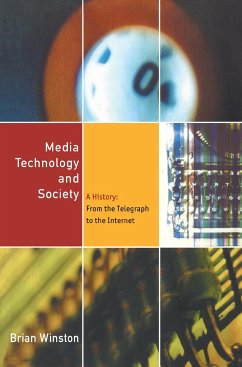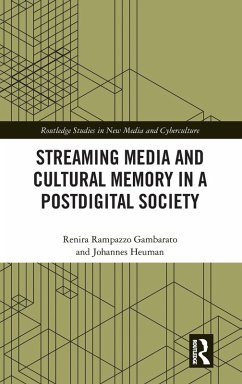
Media,Technology and Society
A History: From the Telegraph to the Internet
Versandkostenfrei!
Versandfertig in 1-2 Wochen
206,99 €
inkl. MwSt.
Weitere Ausgaben:

PAYBACK Punkte
103 °P sammeln!
Challenging the popular myth of a present-day 'information revolution', Media Technology and Society is essential reading for anyone interested in the social impact of technological change. Winston argues that the development of new media forms, from the telegraph and the telephone to computers, satellite and virtual reality, is the product of a constant play-off between social necessity and suppression: the unwritten law by which new technologies are introduced into society only insofar as their disruptive potential is limited.













